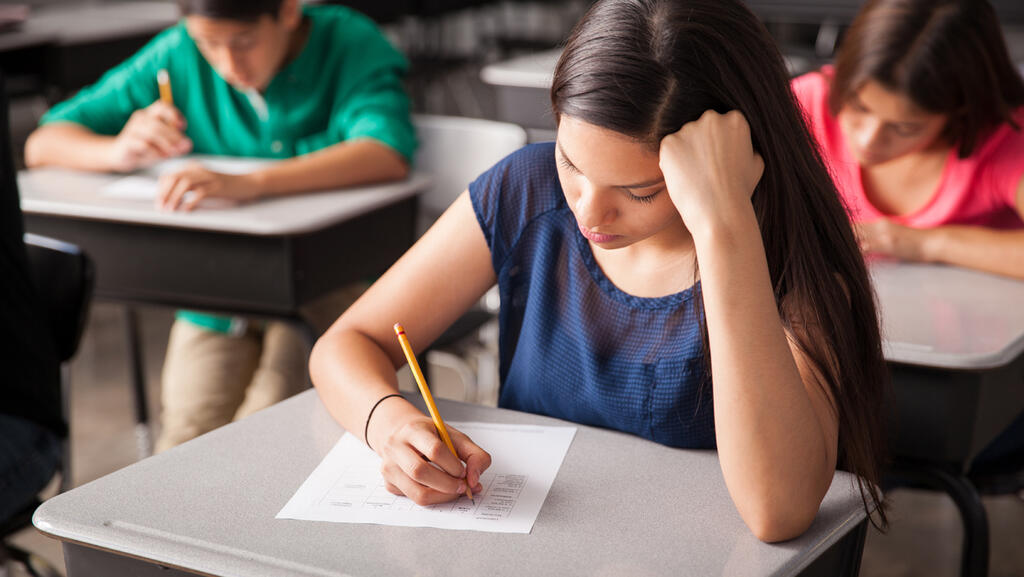A new study examining the impact of parental education on children’s scholastic achievements found that Israel lags behind when it comes to bridging the gap between students from different socio-economic backgrounds.
Read more:
The study found that Israeli students who had at least one parent who graduated high school scored 16% higher on average than students whose parents did not complete high school - twice as high as the leading countries in the survey.
Researchers from Shoresh Institution for Socioeconomic Research - led by Ariella Sabin, Prof. Eyal Kamhieh, and Prof. Dan Ben-David - conducted a study that compared Israel to the leading countries in the Program for International Student Assessment (PISA) exams between 2006 and 2018. The study focused on three key proficiencies - reading, mathematics, and science.
The study analyzed 51 countries, with at least 14 out of 15 tests conducted in each respective year and found that Israel ranked 37th in average scores across the three domains - a substandard result.
Additionally, Israeli students showed the highest average gap in scores compared to all participating countries, with particularly significant disparities observed between the scores of students in Hebrew and Arabic.
The study's findings suggest that the academic gap between children with at least one parent holding an academic degree and children whose parents did not complete high school increases significantly. In Israel, the gap stands at 25%, compared to a 14% gap in leading countries.
The largest academic achievement gaps between Israel and leading countries were observed among children with parents who hold academic degrees versus those whose parents did not complete high school. In Israel, the gap among these children is 32%, nearly twice as large as the 17% gap in leading countries.
The researchers noted that the success of educational systems in addressing the gaps that students bring from home is key to promoting equal opportunities and fostering intergenerational social mobility as a whole. Additionally, from analyzing the data of the PISA tests in the three main domains conducted in the relevant years, it was determined that the Israeli education system is less successful than leading countries in narrowing these gaps.
Furthermore, the findings also indicate that the gaps between students' scores in Hebrew, based on their parents' education level, are higher (sometimes more than twice as high) than in leading countries. Additionally, the connection between parental education and their children's achievements remains stronger in Israel than in leading countries.
"In lieu of a substantial improvement in the ability of Israel’s education system to overcome the gaps with which the pupils come from home, the hurdles on the path toward intergenerational mobility may become insurmountably high," researchers pointed out.
"Children of more educated parents tend to have a relative scholastic advantage over children of less educated parents... However, good public education systems can reduce the link between parental education and their children’s educational achievements."
The researchers added that parents have a significant influence on the accumulation of human capital in their children through two main channels: the genetic coordination between parents and children, which is a natural influence beyond parental decisions, and investments in their children's human capital, which are the result of parental choices.
Parents who are more educated generally have financial means that allow them to invest more in their children's human capital. They are more aware of the economic and social importance of investing in human capital and tend to live in areas with higher socioeconomic levels, where schools have better teaching standards and peers have higher achievements.
According to the researchers' findings, "[T]he very fact that educated parents in Israel are more involved in their children’s educational process may be the result of their understanding that the education system does not provide their children with sufficient knowledge they perceive is required.
The bottom line is that the many objective shortcomings of the education system in Israel – for example, low teacher quality, overcrowded classes, managerial malfunctioning and disciplinary problems, all considerably worse than in other developed countries – severely handicap the Israeli education system’s ability to deal with the achievement gaps between pupils who come from different socioeconomic backgrounds."





